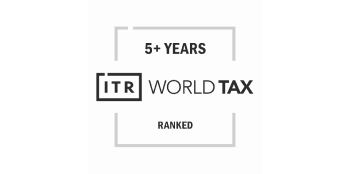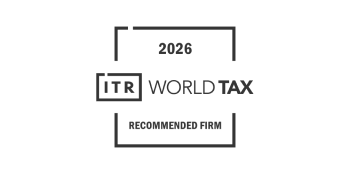


On September 8, 2025, the 2026 Economic Package was submitted to the Honorable Congress of the Union, proposing substantial amendments to the Customs Law and to the General Import and Export Tax Law (LIGIE). These changes reflect a shift in trade policy and a customs regime with stricter controls. The initiative will be reviewed and voted on by Congress, which may result in changes to the matters outlined herein.
Main Amendments
1. Update of Legal Framework and Definitions
The bill updates the legal framework of the Customs Law by defining key terms such as “customs agency,” “strategic bonded premises,” “customs guarantee account,” “electronic file,” and “inventory control.”
The National Customs Agency of Mexico (ANAM) is recognized as the competent authority for inspection, audit, oversight, and collection relating to customs operations.
2. Implementation of ANAM Technology
Both customs premises and bonded facilities must have electronic control systems, video surveillance, and real-time monitoring.
The reform incorporates technological tools such as photographs, videos, audio recordings, drones, and handheld scanners, granting full evidentiary value to files obtained during verifications.
3. Reinforced Joint and Several Liability
Joint and several liability are established among customs brokers, importers, and exporters, meaning all are jointly responsible for compliance with obligations arising from customs operations.
Such obligations include:
In addition, the bill introduces new grounds for the suspension and cancellation of customs broker licenses (patentes) and eliminates exemptions from liability, which will make customs brokers and customs agencies directly liable for the payment of duties and taxes.
4. Transformation of the Licensing System
It is proposed to limit the term of customs broker licenses to a period of 10 years, renewable, thereby removing their previous lifetime character.
This change could create uncertainty regarding the stability and continuity of authorization to practice, potentially affecting long-term planning, investment, and confidence among customs brokers and the companies that rely on their services. There is a risk that a license will not be renewed for reasons unrelated to the broker’s performance, which could disrupt operations, generate additional costs, and discourage professionalization and the development of long-term commercial relationships.
The creation of a Customs Council is also proposed to oversee the granting, renewal, and cancellation of licenses.
5. Mandatory Digitalization
The reform requires that the electronic files be permanently updated and that inventory control be automated and fully traceable, granting the tax authorities immediate access to such information, which may entail higher costs and administrative burdens for companies.
6. New Guarantee Requirements
Mandatory deposits in customs accounts
New requirements are introduced to secure foreign trade duties and taxes by requiring deposits into customs accounts for, among others:
This measure may increase financial costs and operational complexity for companies, especially those with limited cash flow.
7. Restrictions on Strategic Bonded Premises (RFEs)
8. Enhanced Controls for IMMEX
The bill provides for increased controls on companies operating under the IMMEX program (Manufacturing, Maquiladora and Export Services Industry):
9. Procedures and Penalties
The period for the customs authorities to verify the declared customs value of goods is extended from 6 to 12 months in cases of alleged undervaluation.
In the event of non-compliance with Mexican Official Standards (NOMs), the customs authority is empowered to seize the goods, not merely detain them as before.
The catalogue of offenses and fines is expanded to be proportionate to the importer’s conduct.
10. E Commerce and Courier Services
Controls continue over imports through courier and parcel companies to combat undervaluation.
ANAM may authorize courier and parcel companies to continue using the simplified customs clearance procedure, provided certain requirements are met, including maintaining a risk analysis system with online access for the authority, enabling detection of threshold overruns, repeated imports, and the like.
11. Certified Companies
For certification, applicants—including partners/members, shareholders, and legal representatives—must not have been convicted of offenses punishable by imprisonment or of sanctions related to foreign trade operations.
If Authorized Economic Operator (AEO) status is cancelled due to tax crimes or infractions detrimental to the Federal Treasury, re-application for certification will be barred.
Trade Protection Framework
1. Scope of the Measure
More than 1,400 goods will be subject to new tariffs under the WTO most-favored-nation (MFN) principle, but countries with which Mexico has free trade agreements will retain preferential treatment and will not be affected, while imports from countries without agreements, especially in Asia, will face increases.
2. Specific Sectors Protected
The Ministry of Economy published in the Federal Official Gazette on September 17, 2025, a notice launching a public consultation on the operation of the United States–Mexico–Canada Agreement (USMCA/T MEC). This call responds to Article 34.7 of the Agreement, which mandates a joint review on its sixth anniversary, in July 2026.
For the private sector and Mexican industry, this consultation is a strategic opportunity to influence Mexico’s position vis à vis the United States and Canada. Companies may raise practical concerns regarding rules of origin, administrative burdens, disputes in sensitive sectors (energy, steel, automotive), and propose adjustments to strengthen national competitiveness.
However, the process also poses risks if there is no active participation. The absence of private sector comments could limit Mexico’s ability to defend strategic interests, potentially resulting in heightened requirements in labor or environmental disciplines, as well as additional compliance costs for domestic industry.
Awards














